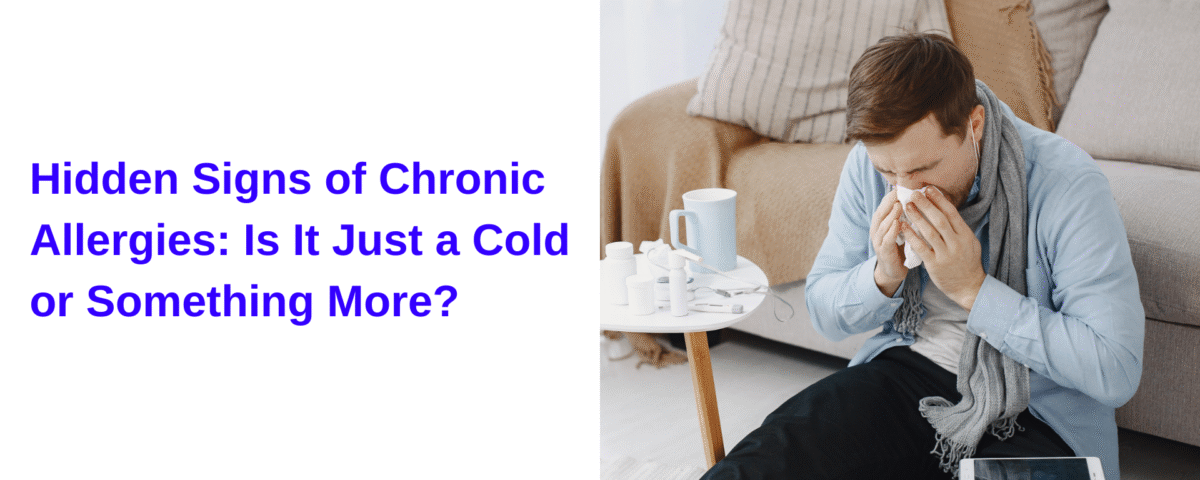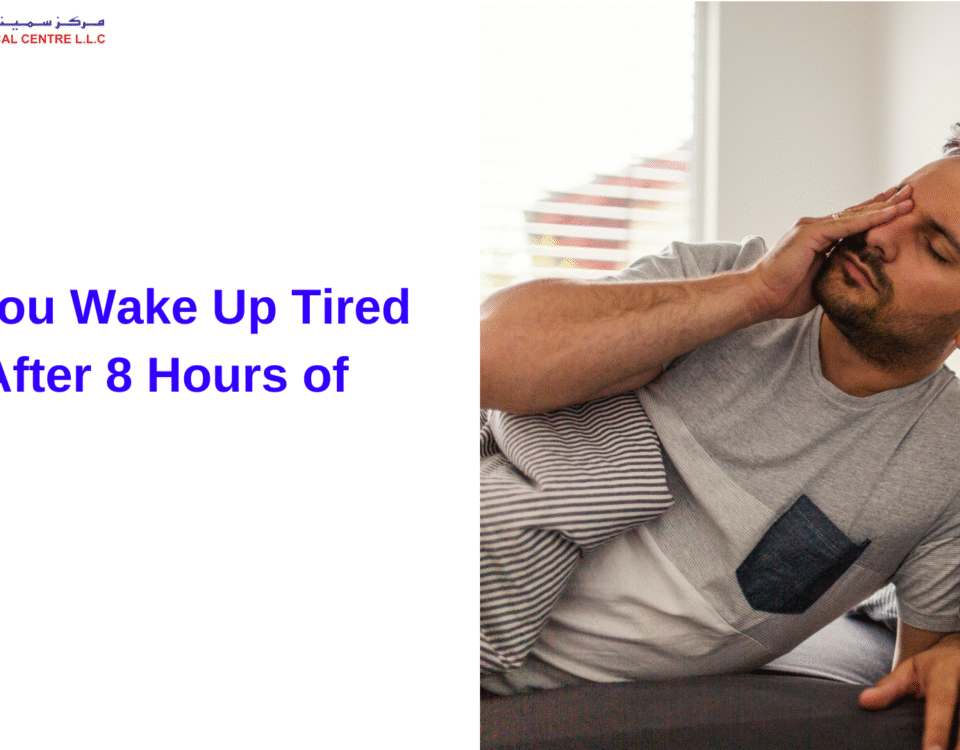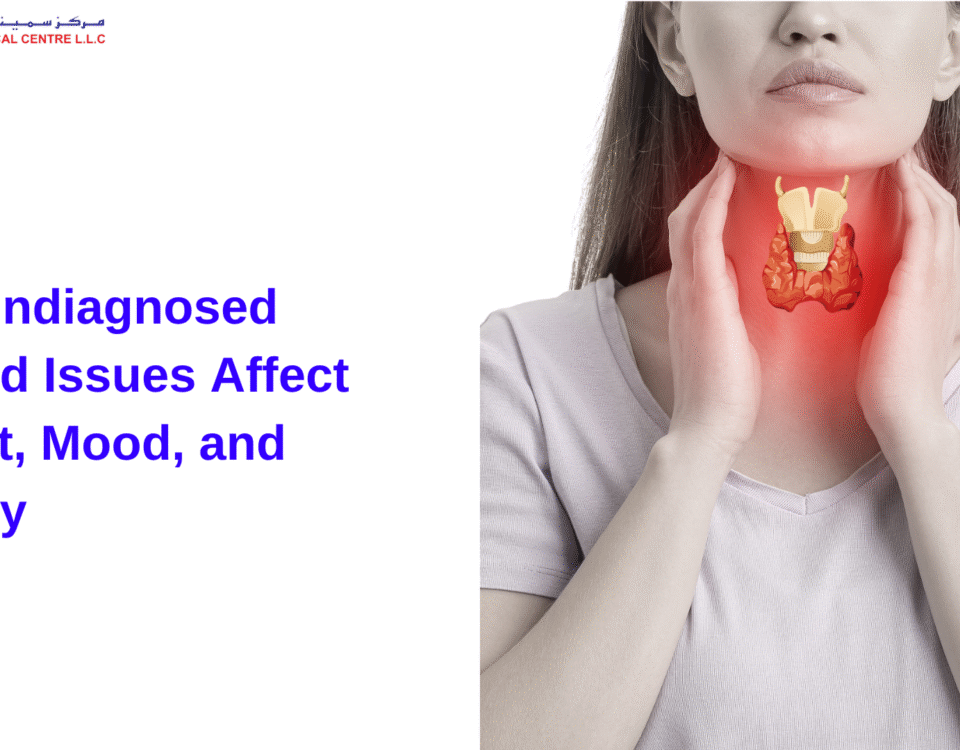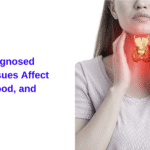
How Undiagnosed Thyroid Issues Affect Weight, Mood, and Fertility
August 11, 2025
Why You Wake Up Tired Even After 8 Hours of Sleep
August 18, 2025Hidden Signs of Chronic Allergies: Is It Just a Cold or Something More?
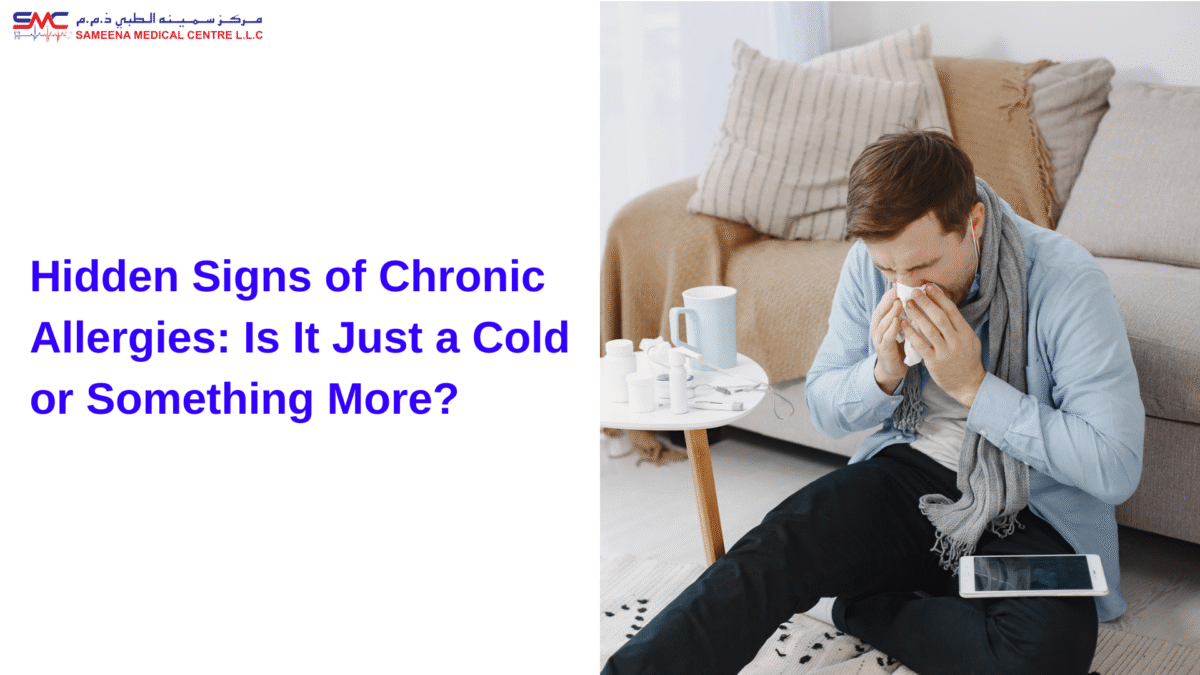
The “Cold” That Never Ends
It starts with a runny nose, a few sneezes, and a bit of congestion. You tell yourself it is just a cold, something that will pass in a week or so. But the days go by, and instead of getting better, you are still reaching for tissues, your eyes feel irritated, and you wake up feeling tired.
When symptoms last beyond 7 to 10 days, you might not be dealing with a cold at all. Instead, you could be experiencing chronic allergies. Allergies occur when your immune system overreacts to harmless substances such as pollen, dust mites, pet dander, or mold. Unlike a cold, which is caused by a virus and eventually clears on its own, allergies will persist as long as you are exposed to the trigger.
Recognizing the difference between a lingering cold and chronic allergies is crucial because untreated allergies can affect your quality of life, disrupt your sleep, and even lead to complications like sinus infections.
Hidden Signs of Chronic Allergies You Might Be Overlooking
Most people associate allergies with sneezing in spring or itchy eyes during pollen season. However, chronic allergies often show up in subtle ways that can easily be mistaken for something else. Below are the lesser-known signs to look out for.
Symptoms That Linger Beyond the Typical Cold Timeline
A cold usually runs its course in about a week. If your symptoms persist for several weeks or keep returning shortly after improving, this is one of the clearest signs you may have allergies. Common allergy symptoms include nasal congestion, sneezing, and watery eyes. Unlike a cold, these symptoms often flare up in certain environments or during specific times of the year.
Itch-Related Clues
Itching is one of the hallmark symptoms of allergies. Viral infections rarely cause itchiness, so if you experience any of the following, consider allergies as a cause:
- Persistent itchy eyes, sometimes accompanied by excessive tearing without signs of infection
- Itchy ears or a tickling sensation deep inside the ear canal
- An itchy throat that feels dry and irritating, particularly at night
- Itchy palate, which may cause you to try “scratching” the roof of your mouth with your tongue
This itchiness results from the release of histamine, a chemical your body produces in response to allergens.
Visual and Physical Giveaways
Chronic allergies can cause visible signs on your face. One of the most common is the appearance of dark circles under the eyes, often called “allergic shiners.” These are caused by blood pooling under the skin due to nasal congestion. Puffy eyelids or swelling in the face, particularly in the morning, can also indicate allergic inflammation. These physical signs tend to improve temporarily when you are away from allergens, but return quickly when you are exposed again.
Patterns and Triggers
A major clue that you are dealing with allergies rather than a cold is noticing patterns in when and where your symptoms occur. If you consistently feel worse indoors, especially in dusty rooms or around pets, indoor allergens may be the cause. If your symptoms spike during certain months, seasonal pollen might be to blame. Some people notice worsening symptoms after exposure to strong scents such as cleaning products or perfumes.
Overlooked Body Reactions
Chronic allergies can lead to other symptoms that many people overlook. One is a persistent cough caused by postnasal drip, where mucus from the nasal passages drips down the back of the throat. This can also result in a hoarse voice or the need to constantly clear your throat. Allergies can also contribute to fatigue, not because they directly make you tired, but because nasal congestion often disrupts normal breathing during sleep, leading to poor rest.
Why Allergies Are Mistaken for Colds
Allergies and colds share many symptoms such as sneezing, nasal congestion, and mild fatigue. The key differences are in the cause and duration. Colds are triggered by viruses and typically improve within a week, while allergies are caused by an immune response to allergens and last for as long as exposure continues. Another key difference is that allergies are far more likely to cause itching, whereas colds rarely do.
How to Confirm It Is Allergies and Not a Cold
If you have been experiencing persistent symptoms for more than a week or two, getting tested is the only way to be sure. Common diagnostic methods include:
- Skin prick tests to determine which allergens trigger your symptoms
- Blood allergy panels to detect allergic antibodies in your system
- Nasal endoscopy to check for chronic sinus inflammation or structural issues if symptoms are complex
At Sameena Medical Centre, all allergy testing is performed in-house for convenience and accuracy. This means you can receive same-day results and begin treatment without unnecessary delays.
Managing Chronic Allergies for Long-Term Relief
The right treatment depends on your specific triggers and symptom severity. Common approaches include:
- Allergen avoidance measures such as using dust-proof bedding, installing HEPA air filters, and reducing exposure to mold and pet dander
- Medications like antihistamines to reduce itching and sneezing, nasal corticosteroids to control inflammation, and decongestants for short-term relief of nasal blockage
- Immunotherapy in the form of allergy shots or sublingual tablets, which work by gradually desensitizing your immune system to allergens over time
Combining these strategies often results in the most effective long-term control of allergy symptoms.
Conclusion
If you have been living with “cold” symptoms that never seem to go away, chronic allergies may be the underlying cause. Identifying the problem early allows you to take control of your health, reduce your discomfort, and prevent complications.
Sameena Medical Centre in Sharjah provides comprehensive allergy diagnosis and treatment, offering personalized care tailored to your symptoms and triggers.

